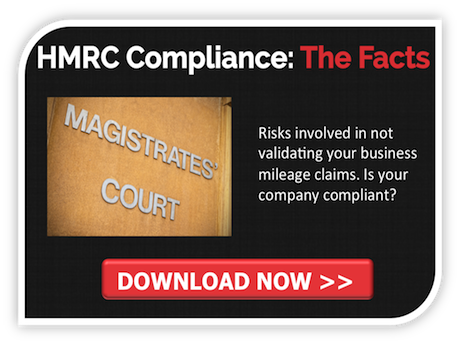Ignore HMRC Compliance And The TaxMan Cometh!
According to industry experts including The Miles Consultancy, Fleet Innovations and Web Expenses, employees routinely exaggerate their business mileage claims by either rounding up the mileage on journeys they have made or adding in ‘phantom’ journeys they have not made.
And because auditing mileage claims for HMRC compliance is time consuming, many companies simply turn a blind eye to this problem, pay the extra money and hope that HMRC don’t notice.

The problem is that if HMRC do notice that employees have been paid for more miles than they have actually driven the whole amount of the excess mileage is liable for tax and NICs. Depending on the circumstances in which the excess mileage is discovered and the mileage involved, HMRC can also apply fines and penalties. And, as Road Angel note “HMRC handed out more than 15,000 fines to businesses big and small in 2011 for incorrect mileage claims”.
According to MANAS (Management and Accounting Services) “the average liability for tax and NICs on private fuel benefit has been £1,300 per year. So if half of, say, 50 claimants in a business are in the frame for exaggerating their mileage claims, the HMRC’s six year back tax calculation might be 25 x £1,300 x 6 = £195,000”.
But it doesn’t end there as this does not account for fines and penalties HMRC can apply. These can be 35% of the tax lost for a ‘prompted disclosure’. This increases the cost to the company to £10,530 per employee, using MANAS's example. It also explains why Fleet News “has even seen a 700 vehicle fleet face a fine of £4.1 million”.
To further compound the problem, this year as the result of a Pilot Study the HMRC announced that they are taking on an additional 2,500 staff to enable it to carry out Business Record Checks (BRCs) at 60,000 companies between now and 2015. This follows a Pilot Study in 2011 which found that “40% of firms’ records were not up to scratch… [and] 11%... were bad enough to warrant further investigation by the tax authorities” according to Fleet News.
There are two steps in solving the problem. The first is to collect adequate records. According to The Miles Consultancy, employers “… need to be able to show that your business collects sufficient details on business journeys. That means recording the date and purpose of the trip, and the start and finish points and accurate mileage”.
The second is to audit the records (and correct them if necessary) to ensure that they do not contain rounded up journeys, or 'phantom' journeys.
Our mobile workforce management solutions provide both risk management and compliance as well as improving productivity, efficiency and customer service and reducing costs. By ensuring that you can validate your business mileage you will reduce the risk of fines, and minimise the administrative effort in capturing preparing and validating mileage claims. This all contributes to financial savings for a business and will generate a profit centre.
So when the taxman cometh, are you ready?
For a simple solution...http://www.romexworld.com/hmrc-compliance-the-facts
